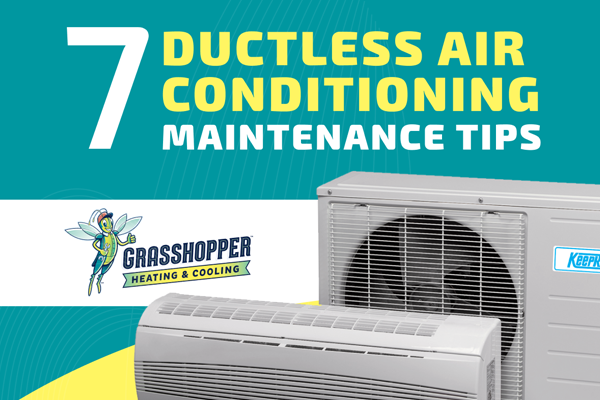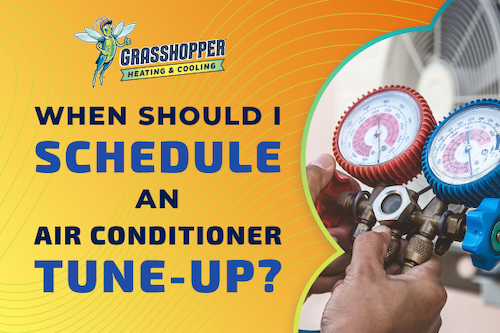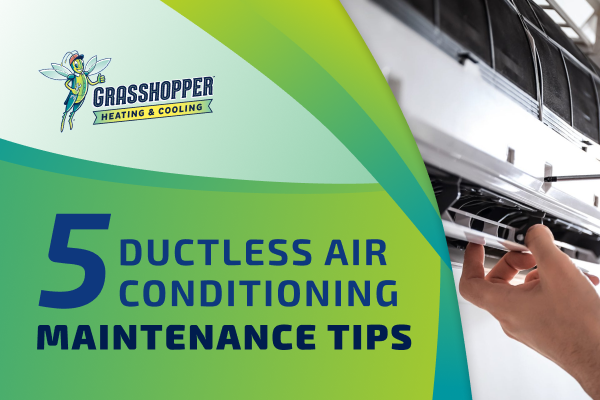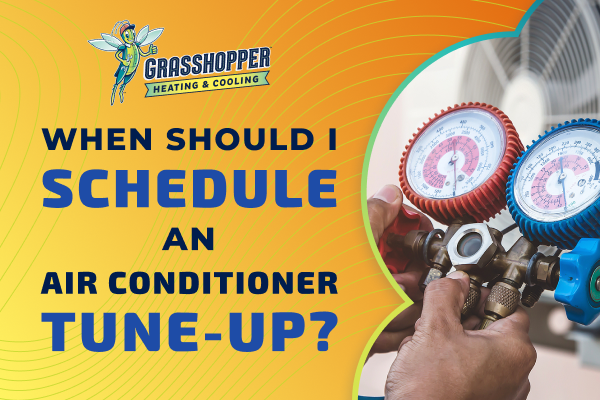How to Ensure Central AC Installation Goes Smoothly
Central AC installation can be stressful, especially if it’s not planned well and you make mistakes. Properly investing your time and money can result in a smoother installation process plus improved energy efficiency, fewer repairs, and a longer-lasting AC. It can save you from the start and throughout the life of your system.
Achieving these results may be easier. Here are effective ways to ensure a smooth and successful AC installation in your Albany-area home:
Make Sure the AC System Isn’t Too Big or Too Small
Sizing a central air conditioner is a crucial step. The square footage of your home is just one factor in determining the best-sized system. For accurate results, a professional will perform a Manual J load calculation that uses room size, ceiling height, the number of windows, and the number of occupants (plus other variables) to help select an AC unit.
An undersized AC may run constantly and not cool your home. If a unit is oversized, it may not run long enough, leading to higher humidity, increased energy consumption (by turning on and off more frequently), and strain that can shorten the system’s life. The right-sized system will run efficiently, require fewer repairs, and maintain indoor comfort.
Choose the Ideal Location for AC Equipment
An HVAC contractor should inspect your home to determine where to place the outdoor and indoor units. The outdoor unit, which contains the compressor and condenser coil, should be placed:
- Out of Direct Sunlight: It can heat refrigerant, force the unit to work harder, and increase wear and tear.
- Away from Trees or Bushes: Leaves, bark, twigs, and other debris can get trapped in the unit and damage the blower fan and motor.
- Away from a Bedroom Wall: Condenser units can be noisy, so place them away from any wall shared with a bedroom or other frequently used area.
- In a Protected Spot: Consider surrounding the outdoor unit with a fence or other barrier to protect it from debris, animals, or children. Also, maintain a few feet of clearance around it.
Your options for placing the indoor unit, which includes the main blower fan and evaporator coil, may be limited. Many homeowners choose to install it in the basement or a closet. Also, consider placing the indoor unit:
- Away from Sleeping Areas: The blower fan will make some noise, so it can distract light sleepers. It should be placed far enough from any bedrooms if possible.
- Not Near Electronic Equipment: Air conditioners are designed to drain excess moisture, but if there’s a clog, water can drip onto the floor or nearby equipment and cause damage.
- In a Cooler Area: If the unit is in a hotter location, servicing it will be more complex and time-consuming, increasing a technician’s billable hours (you’ll pay more for labor).
Where you install the thermostat is also important. Make sure it’s not in direct sunlight, in an area prone to temperature extremes, or directly below a vent.
Prepare Your Home for Installation
When the HVAC installers arrive, they will need space to work. Know in advance where equipment will be installed outdoors and inside your home. Technicians will also have to lay out tools and parts. Trim back foliage outside if necessary. Indoors, move any furniture, artwork, and antiques that may limit workers’ space or movement. This will help the installation go smoothly and efficiently and reduce the risk of accidents and property damage.
Schedule a Ductwork Inspection
Duct replacement is often a part of AC installation and is recommended by many HVAC contractors. If ductwork is damaged, blocked, or deteriorated, it can impede the distribution of conditioned air throughout your home. By inspecting ductwork, a technician can determine if it needs repair or replacement. If so, it’ll extend the length and cost of the project but enable the new system to run more efficiently.
Arrange for Safe Accommodation for Children and Pets
On installation day, heavy equipment and tools will be in your home. The process will go more smoothly and safely if children and pets are out of the way. Find a secure area in your home or make arrangements with a family member, friend, or neighbor. Also, inform any tenants of the installation schedule so they can make the proper arrangements.
Adjust Your Schedule Accordingly
As the owner of the property and/or a decision maker, you should be present when the AC installation team arrives. They’ll do an initial walk-through of the job site and may have questions for you at any point. Being there to provide answers can help things go more smoothly. You should also ask any questions that haven’t yet been answered.
You may also need to be present for:
- Equipment testing
- City inspections
- Progress payments, as outlined in the contract
- An overview of operating the system
- A review of warranty information
- An explanation of maintenance and service requirements
Hire a Professional AC Installer
Homeowners with a knack for DIY projects may consider installing a central AC system themselves. However, central AC installation should be left to a knowledgeable, experienced, and licensed professional. They know how to avoid costly mistakes and have the tools and equipment to install complex components, ensuring the job is done safely and correctly.
Contact Grasshopper Heating & Cooling for Central AC Installation
Based in Clifton Park, NY, Grasshopper Heating & Cooling ensures AC installation goes smoothly by determining your cooling needs, sizing the system, and following all safety protocols and local regulations. We are EPA-certified and have an A+ rating with the Better Business Bureau. We offer specials and financing opportunities to help you afford a newer, more efficient air conditioning system. To learn more or schedule a free estimate on AC installation and replacement, call (518) 240-9467 today.









